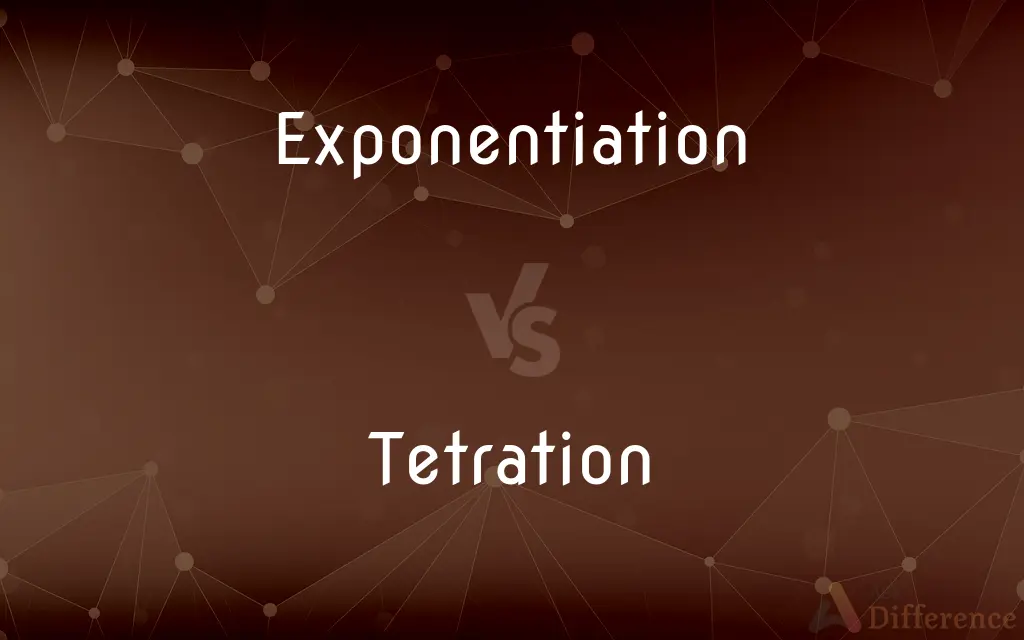Exponentiation vs. Tetration — What's the Difference?

Difference Between Exponentiation and Tetration
ADVERTISEMENT
Compare with Definitions
Exponentiation
Exponentiation is a mathematical operation, written as bn, involving two numbers, the base b and the exponent or power n, and pronounced as "b (raised) to the (power of) n". When n is a positive integer, exponentiation corresponds to repeated multiplication of the base: that is, bn is the product of multiplying n bases: The exponent is usually shown as a superscript to the right of the base.
Tetration
In mathematics, tetration (or hyper-4) is an operation based on iterated, or repeated, exponentiation. There is no standard notation for tetration, though ↑↑ {\displaystyle \uparrow \uparrow } and the left-exponent xb are common.
Exponentiation
The act of raising a quantity to a power.
Tetration
(arithmetic) The arithmetic operator consisting of repeated exponentiation, by analogy with exponentiation being repeated multiplication and multiplication being repeated addition, ba denoting a to the power of a to the power of ... to the power of a, in which a appears b times. Notation: ba, a↑↑b or a→b→2
Exponentiation
The process of calculating a power by multiplying together a number of equal factors, where the exponent specifies the number of factors to multiply.
In 54, the factors are all 5, the power is 4 and exponentiation gives the result 625.
ADVERTISEMENT
Exponentiation
A mathematical problem involving exponentiation.
Exponentiation
The process of raising a quantity to some assigned power.
Exponentiation
The process of raising a quantity to some assigned power
Share Your Discovery

Previous Comparison
Alee vs. Leeward
Next Comparison
Munch vs. Punch














































